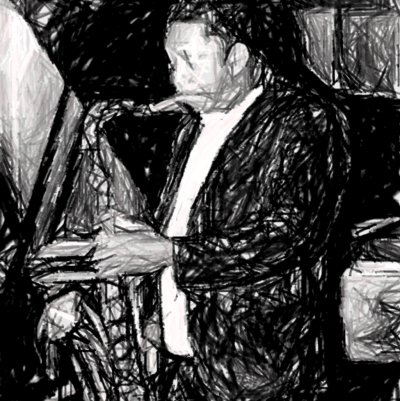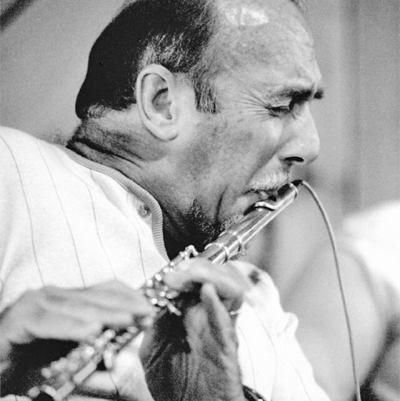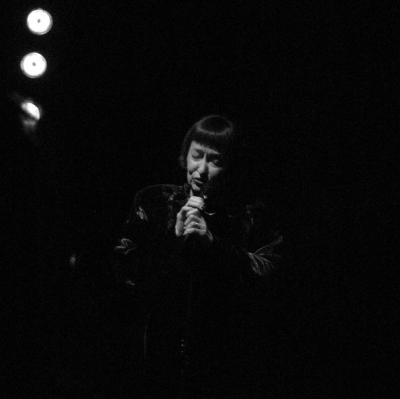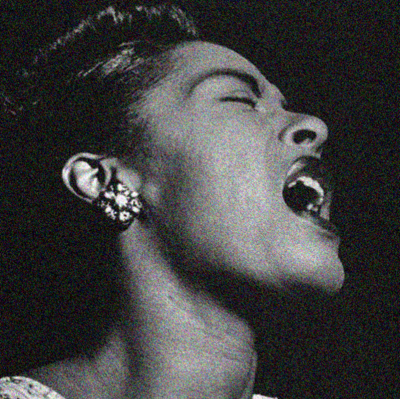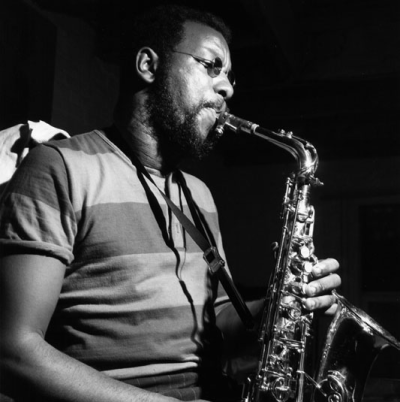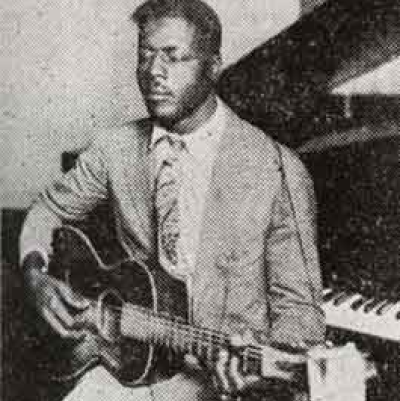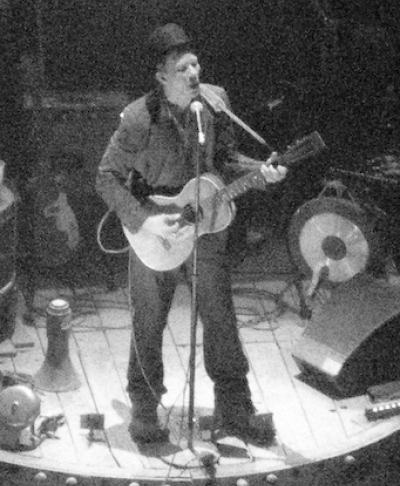.
.
“Tony and Sal Get Even,” a story by Marco Katz Montiel, is excerpted from his novel Salsa Sensation. It was a short-listed entry in our recently concluded 61st Short Fiction Contest, and is published with the consent of the author.
.
.
___
.
.
CC0 Public Domain/via pxhere
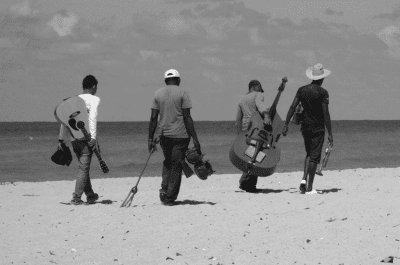
.
Tony and Sal Get Even
by Marco Katz Montiel
.
….. Tony Martínez blew hot air on his trumpet mouthpiece. His high school music teacher had told him about warming up the instrument before placing his lips on it, and the barely heated apartment in East New York was certainly one of the places that called for such measures. Going through this routine of warming up the mouthpiece and then slowly oiling the valves and taking the chill out of the metal also helped Tony get his mind off the previous night’s fiasco and, hopefully, on to the exercises that would build his embouchure, his “chops” as the pros like to say, for musical engagements to come. Right now, it would feel good to play, even for just a few minutes, before heading out the door.
….. Last night really had taken a wild turn. It all started out normally enough, with three long sets at Goofy’s, a small but lively salsa club in Williamsburg, a Brooklyn neighborhood filled with Hasidic Jews during the day and Puerto Ricans at night. (They all lived there around the clock, he realized, but seemed to have adopted this schedule as a means of staying out of each other’s way.) The bandleader, Billy Barata, got drunk during the first set, a normal mode of operation that actually made his mediocre voice more agreeable, and by the final chord was flying high. During the breaks, he hit on the younger women at the bar, his real reason for being there at all, but had had no luck that evening. Neither the booze nor the brush-offs interfered with Billy’s recollection of the back door often employed by the club owner, so he did manage to get into the alley right after the last set and halt the departure of that distinguished figure in time to remind him that the band required payment.
….. Coming back through the club, the bandleader quickly changed his smile of triumph to a scowl.
….. “Bastard made it out ahead of me,” he complained.
….. “What the fuck?”
….. “¡Cabrón!”
….. “Ya gotta sprint to catch that pendejo.”
….. “¡Mierda!”
….. As the musicians shared these opinions, the bandleader grabbed his bass and headed out the door.
….. “No pasa nada. I’ll catch up with him and pay you guys on Monday.”
….. As Billy headed out the door, Tony and Sal the trombonist grabbed their stuff and took off after him. They had seen the bandleader pull stunts like this and didn’t feel like waiting until next week—or never—to get paid for their night’s work.
….. Out in the street, Tony started up his car and, with the trombone player’s feet barely making it into the vehicle, took off as the passenger-side door slammed shut. As they passed away from the commercial area under the elevated subway tracks and into the adjacent residential streets, the trumpet player managed a fair imitation of a movie car chase, hoping all the time that no stray dogs would choose this moment to wander into his path.
….. Stone-cold sober, the pair rolled up on the front door of the bandleader’s attached house.
….. “Hey, Billy,” the trumpet player called out, wishing that he would not have to disturb the bandleader’s wife and kids.
….. “Get out here ¡pendejo!” screamed the normally mild-mannered trombonist.
….. “Cuidao con las palabrotas,” murmured Tony. “Remember his family. This ain’t their beef.”
….. “Gotcha,” replied Sal in an equally quiet voice, and then turning around so that the neighbors could hear. “You have to pay the musicians in the band. Thief! Someone oughta call the cops on you, Billy Barata.”
….. The house might as well have been a tomb for all the response this cacophony elicited. Realizing that a siege would get them nowhere and that the neighbors might actually call on the law and have them arrested, the pair of musicians turned to leave when the trombonist had an idea.
….. Sal and his ideas!
….. “Let’s go back to the club,” he called out excitedly, getting back into Tony’s car.
….. “What? Have you gone nuts?”
….. “Just go. You’ll see. And try not to miss any lights. We need to get back there before the joint closes.”
….. The trombonist needn’t have worried about Goofy’s remaining open. He just hadn’t been there often enough to know that the good times in that windowless chamber of mirth would roll on well past the sunrise its patrons would never see.
….. Parking the car as close to the doors as possible, as per his bandmate’s instructions, Tony followed his colleague into the club and over to the bandstand.
….. “Not enough that we have to burn ourselves out making music all night,” Sal called out in his best beleaguered workingman’s voice. “Now Billy tells us we have to lug all this equipment back to his place.”
….. This was enough to allay any concerns that the bartender and other servers might have had about theft. After all, they had just seen these two on that same stage for most of the evening. In any case, no one interfered or offered any comment as the pair of musicians began carting microphones, stands, and amplifiers from the stage to the trumpet player’s vehicle.
….. After taking the equipment to Tony’s apartment, moving slowly in order to not wake up his mother, the musicians headed for a local after-hours bar for a drink and some calming-down conversation. East New York was a fierce part of Brooklyn, even worse than Williamsburg, but the trumpet player had grown up there and had a good handle on which places to avoid and which could be trusted.
….. “You know the difference between a band and a bull?” Tony asked after they had asked the bartender for two shots of rum, puro y duro, en las rocas.
….. “Uh-uh.”
….. “With a bull, the horns are in the front and the asshole in the back.”
….. With that laugh to take off the edge, Sal started going on about professions that attract the worst kind of people, with bandleaders and club owners right up there with police officers and DMV clerks as prime examples. A couple of years older than Tony, the trombonist had already played in more lowlife joints than anyone could do and stay healthy. In spite of this, his hopes for success had not been dashed.
….. “You know, I had a chance to talk with Charlie Palmieri last week at the Cerromar, and he took my number.”
….. “Palmieri? Qué chévere. Once you get in with him, don’t forget your pals when he needs a new trumpet player.”
….. “Sure thing, broder, but we’ll see…”
….. “Yeah, we are like brothers, don’t forget. How’d you meet him anyhow?”
….. “In the kitchen, would you believe it?”
….. “Sure, he’s a big guy, after all. Gotta eat.”
….. “No lie, broder. He was in there by himself, fixing up a plate like it was his own place.”
….. “Can he cook?”
….. “Music or food! Anyhow, he likes to talk about it too, especially Italian food. I hadn’t thought about his name being Italian, and when I mentioned that my mom was Italian he just went off.”
….. “No kidding?”
….. “It was like that was his real culture, at least when it comes to food. He kept going on about risotto and every kind of pasta and all the things you could make parmesano and pasta fazool and aglio e olio. Damn! Aglio e olio, he made it all sound like fine dining! You know, for me I dig cuchifrito and frituras all day and rice and beans with everything. With Mom long gone and most of her family uninterested in me and Pop, I haven’t had as much of their food as I should have, but I wasn’t gonna let that get in the way of this opportunity. Besides, I can shovel down a plate of pasta any old time, no problem.”
….. “And from this you got in with him.”
….. “Yeah, that was funny. At a certain point he stopped and said, ‘Hey man, why don’t you lay your number on me? I might add a trombone to my lineup one of these days.’”
….. “Well, his brother hasn’t done bad with two trombones.”
….. “Don’t I know it.”
….. “You ever think of playing with Eddie?”
….. “Sure I do, waddaya think? Only problem is he hasn’t asked, and I haven’t run into him in any kitchens. But you know the older brother is like an elder statesman. I sure would love to play in that band.”
….. “Well good luck. Y no me olvides.”
….. “Not a chance, broder.”
….. Shortly after he fell asleep, Sal woke up to the sharp ring of the telephone he shared with several roommates. All of them had been out playing late the night before, so he tried to do them a favor and get it before the second ring.
….. “Ladrón!” rasped of Billy Barata.
….. “Hey, wassup?” replied Sal, as casually as possible, not feeling anything like the previous night’s bravado in the cold light of day. Billy was a big guy, and to say he was mean, well, no one who knew him would be surprised to discover him picking his way across the Gowanus Canal just to kick a puppy.
….. “Don’t fuckin’ wassup me, asshole. Get my equipment back to me now or I’ll fuck you up so bad you won’t ever be able to annoy no one no more with your shitty playing.”
….. “Whoa!”
….. “I’ll hit you so hard your mom will feel the blow!”
….. “I’ll call you back, Okay?”
….. “No way you fuckin’ ass—” but by then the line had gone dead on the badass bandleader.
….. With just as little sleep, Tony had already warmed up his trumpet and was now getting dressed for church. This was not his favorite way to spend the morning after a hard Saturday night, but it made his mother happy to have her boy next to her while she prayed with her old friends from the neighborhood.
….. “Solo me queda un hijo pero está conmigo cada domingo,” she quietly mentioned to her friends (more often than she realized), who all had multiple sons but none who attended mass. Antonio’s exemplary conduct, in this and so many other things, could not make up for the terrible loss of señora Martínez’s other children, two from early childhood diseases and one from a gang member’s bullet directed at another boy, but at least this surviving son made it possible for her to show her face with dignity and pride.
….. In addition to showing up at church on a regular basis, Tony had graduated from high school with grades good enough to get him into Brooklyn College. Unlike Sal, or most of his other friends, the young trumpet player loved going to school and planned to make the most of this opportunity. Although he made more money playing at social halls and neighborhood clubs than he would have with a menial afterschool job, the pay hardly induced him to make it his life. He couldn’t understand how Sal thought he had any chance of living on his music; even if he could get in with a famous member of the Palmieri family, it would not lead him to easy street. No, for Tony, the world of business, tantalizingly close on the other end of those East River bridges, held a great deal more glamour, and besides that, he might even be able to keep playing part-time after he got his accounting career going.
….. He did like the idea of continuing to play music. The trumpet connected him to a culture that he had never been able to fully appreciate, having been born in Brooklyn and then spending so many years learning the ways of this land in the city’s public schools. He and Sal tried—and often failed—to speak Spanish regularly, but Tony still found that he talked with his aunts and uncles in English even though he could understand them when they reverted to their own language. It was weird that Sal could carry on conversations so well, given that only one of his parents was Puerto Rican, but, Tony realized, that monina is on a mission! He wants to be all Boricua all the time.
….. Laughing to himself as he thought, yet again, about Sal’s personal culture war, he went to answer a rare Sunday morning phone call.
….. “Ma, I can’t go to church with you today,” he told her after hanging up.
….. “Ay m’hijo, ¿qué pasa?”
….. “I gotta take care of some business.”
….. “¿Hay un problema?”
….. “No, Ma. Just Sal getting himself into something stupid. We’ll straighten it out.”
….. “Qué suerte tiene Sal. Eres un buen amigo.”
….. “Gracias, Mamá. Y el domingo que viene sin falta . . .”
….. “Cuídate.”
….. “Sure thing. See you soon. Te quiero, Ma.”
….. Not having succumbed to Sal’s depth of anger in the first place, Tony felt calm as the two musicians headed to Billy’s house with a trunkful of musical equipment. For the trumpet player, this was simply business: he had stayed calm outside of the bandleader’s house and had only gone along with Sal’s crazy scheme because there had been nothing else to do. Now it was just a matter of picking up their cash and then letting the boss have his stuff back. Tony also felt consoled by the setting for this exchange; Billy was a lot less likely to go nuts in front of his own home with his wife and kids present.
….. As had become plain to all who knew the family, Misty Barata had begun to tire of keeping the family afloat economically. She still went to work every weekday, keeping her commitment to give her husband the time and space he needed to write songs, practice his bass playing, and seek out contacts in the music business, but she was beginning to think the time had come for some results, no matter how small. Opening up for the Ray Barretto or Charlie Palmieri at the Cabarrojeño or Hunts Point Palace would be nice, for example; Misty would like to get dressed up on a Friday evening and bring a friend or two along to show off a triumph like that. With that kind of exposure, her husband might get some recognition, maybe a spot on Ralph Mercado’s B-band list or even a record deal with one of the Fania labels. She believed in his music, even if she hadn’t been out to hear it for a while (having to take care of the kids and all), and felt that he deserved to feel one day that he had done everything he could to make it.
….. God help him if she ever finds out what he really does while she’s at work, thought Tony. He wasn’t sure himself, but he recalled a glimpse he had taken in while headed to a rehearsal in the neighborhood. Coming around a corner, the trumpet player came upon the illustrious Billy Barata modeling his best threads while serenading a group of girls on the junior high school playground. Junior high school! “That’s just sick,” Tony exclaimed under his breath. Crossing the street so that he wouldn’t be noticed, the trumpet player tried to forget it. Later, he thought about telling Billy’s wife, but he hadn’t seen enough to really know what, if anything, was going on, and he didn’t really have much of a personal relationship with the family.
….. As it turned out, the business exchange took place without histrionics. Billy handed over the required sum, and the brass players unloaded his microphones, stands, and amplifiers and even helped get them into his basement. After offering them a shot of rum, which the pair politely accepted in spite of the early morning hour, the bandleader chatted with them for a half hour before sending them off with promises of more work as soon as he heard from the club owner. Knowing that they would never play in his band again, they left with profuse assurances of eternal friendship.
….. Unbeknownst to his side musicians—or to anyone else, for that matter—Billy desperately needed to get his equipment back with a minimum of fuss; he had told Misty that he would be out for the afternoon, auditioning for Johnny Pacheco’s Cotique record label, the cover that he had arranged in order to spend time in an out-of-the-way park with his latest girlfriend, who was, in fact, precisely a year younger than sweet sixteen.
….. “‘ta luego,” he called out to Tony and Sal as they went out the door.
….. “Cógelo suave,” they replied, with more of a Mexican sense of that Nuyorican phrase than any of the three could possibly have known at the time.
….. Sal felt relieved but somehow let down. More of a yeller than a fighter, he never would have been able to engage in real fisticuffs with Billy, but somehow, he had wanted more histrionics, something just short of physical confrontation.
….. “¿Vamos a picar algo?” he suggested once they had gotten into the car.
….. “Sure,” replied Tony, realizing that the morning was shot anyhow. “Let’s grab a bite.”
….. “Djeetyet?”
….. “No, dju?” laughed the trumpet player, who still enjoyed rehashing this classic bit of Italian Brooklynese with his friend for the umpteenth time.
….. “Lesqweet.”
.
.
___
.
.

Marco Katz Montiel writes stories, essays, and books in Spanish and English. His publications include Music and Identity in Twentieth-Century Literature from Our America (Palgrave, 2014); “El disco 45” in Cartas de desamor y otras adicciones (Alcalá, 2019); “Music as Formal and Signifying Feature in García Márquez,” co-written with Gene Bell-Villada for The Oxford Handbook of Gabriel García Márquez (Oxford, 2021); and “In Praise of Watanabe” in the Fall 2022 issue of Ploughshares. Long before all of this, Marco played trombone with Charlie Palmieri, La Orquesta Kubavana, and the Lebron Brothers, and he appears as a major character in Jairo Grijalba Ruiz’s latest book on salsa, La leyenda de Mon Rivera y otros relatos.
.
.
Listen to the c. 1961 recording of Charlie Palmieri play Como Bailan La Pachanga
.
.
___
.
.
Click here for details concerning the 62nd Jerry Jazz Musician Short Fiction Contest
Click here to read “Equal” by Chris Simpson, the winning story in the recently concluded 61st Jerry Jazz Musician Short Fiction Contest
Click here to subscribe to the Jerry Jazz Musician quarterly newsletter
Click here to help support Jerry Jazz Musician
.
.
.







